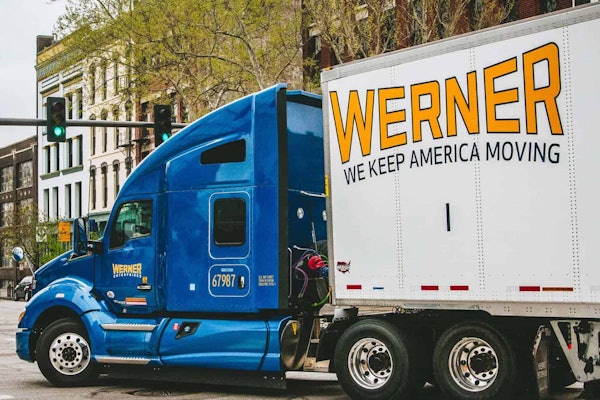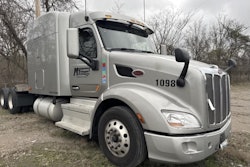After almost four months of talks and, ultimately, a strike authorization vote, negotiators for the Motor Freight Carriers Association (MFCA) and the International Brotherhood of Teamsters on Feb. 6 announced a tentative deal on a new five-year National Master Freight Agreement (NMFA). The package includes increases in wages, insurance, pensions and cost-of-living adjustments as well as job security items, such as a prohibition on subcontracting work within the United States to a Mexican carrier and a reduction in the amount of work that can be diverted to rail. The deal also provides for upgrades in equipment purchased after April 1 and changes in the supplemental agreements that address work rules and other issues by region or location.
The NMFA applies to more than 65,000 Teamsters at ABF Freight System, Roadway Express, USF Holland and Yellow Transportation, but several smaller carriers employing another 20,000 Teamsters generally adopt similar terms. The deal came almost two months before the March 31 expiration of the current contract. On Feb. 3, the Teamsters announced that 95 percent of its members had voted to authorize a strike if necessary.
Both sides claimed victory. MFCA says the new agreement positions its members for growth, especially in regional and next-day service markets. Teamsters leaders contend that the tentative contract reverses a decade-long trend of employee givebacks to management.
“We have reached an agreement that gives our companies the tools to provide expanded service offerings, provides job security for our employees and ensures uninterupted service to our customers,” said MFCA President Tim Lynch. “This is truly a win-win-win opportunity for our companies, our employees and our customers.”
Teamsters General President Jim Hoffa said that the average wage and benefits increase is 3.4 percent over the term of the agreement and the contract ensures that members will have no health care co-pays for the full five years.
“This contract will provide a shot in the arm to American working families who have been faced with givebacks and concessions over the last year,” Hoffa said. “The nation is in the depths of recession and on the brink of war, and we maintained our strong health care benefits, protected our pensions and won the highest wage increases in more than a decade.”
Among the improvements the Teamsters cited were:
- Wage increases of $2.25 per hour over the life of the agreement (50 cents, 40 cents, 40 cents, 45 cents, 50 cents) compared to $1.40 per hour in the 1998 agreement;
- Increases in health and pension of $3.10 per hour over five years – 60 cents, 60 cents, 60 cents, 60 cents, 70 cents – compared to $2.10 per hour in the 1998 agreement;
- A real COLA of 1 cent per hour for every 0.2 point increase in the CPI above 3 percent;
- Employers prohibited from subcontracting any work in the United States to a Mexican carrier;
- Health and welfare insurance paid for military leave increased from 12 to 18 months;
- A reduction of maximum rail miles to 26 percent from 28 percent;
- One additional week vacation after 30 years of service;
- Air conditioning for all city equipment purchased after April 1, 2003;
- Walk-in sleeper cabs for all sleepers purchased after April 1, 2003; and
- Expanded employment opportunities to laid-off NMFA workers.
For more information, visit www.mcfa.org and www.teamsters.org.







